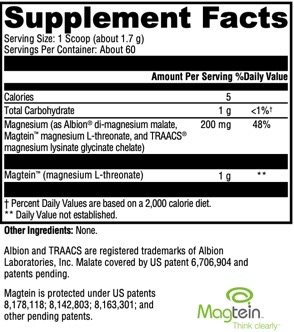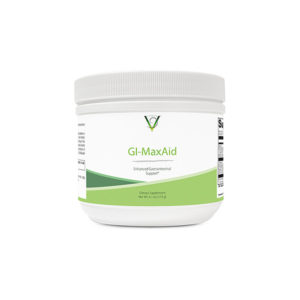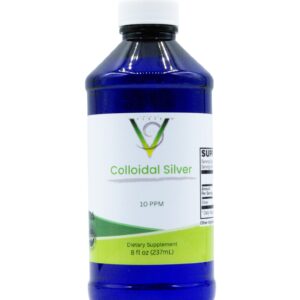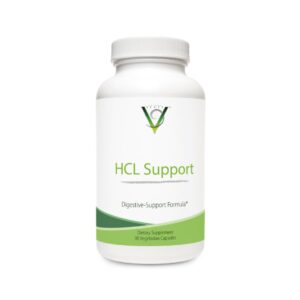IdealMag
$83.99 — or subscribe and save 5%
IdealMag features Albion chelated magnesium plus MagteinTM (magnesium L-threonate), the only form of magnesium proven in animal studies to cross the blood-brain barrier. Boosting the brain’s magnesium level is vital to healthy cognition, which includes long- and short-term memory, learning, stress management, and sleep.
Description
IdealMag Key Benefits & Actions:
- Supports Healthy Brain Magnesium Levels*
- Supports Healthy Synapse Number and Function*
- Supports Cognitive Health*
- Supports Stress Management, Sleep Quality, and a Healthy Mood*
- Helps Ensure an Optimal Magnesium Intake for Overall Health*
Does Not Contain:
Wheat, gluten, soy, animal or dairy products, fish, shellfish, peanuts, tree nuts, egg, ingredients derived from genetically modified organisms (GMOs), artificial colors, artificial sweeteners, or artificial preservatives.
Directions:
Dissolve one level scoop in 4 oz water or adjust amount of water to desired sweetness.
First week: one serving per day immediately before dinner or one hour before bedtime.
Thereafter: one serving during the day, preferably mid-afternoon, and a second serving before bedtime; or use as directed by your healthcare practitioner.
Consult your healthcare practitioner prior to use. Individuals taking medication should discuss potential interactions with their healthcare practitioner.
All Unique Verve Formulas Meet or Exceed cGMP Quality Standards and are manufactured and stored in the temperature and humidity regulated facility in USA.
cGMP = Current Good Manufacturing Practice certification means that every aspect of all Unique Verve manufacturing process has been examined, including laboratory/testing methods (for stability, potency and product formulation)
Made and Packaged in the USA
Supplement Facts:
Serving Size: 1 Scoop (about 1.7 g) Servings Per Container: About 60
Ingredients:
Percent Daily Values (DV) are based on a 2,000 calorie diet.
** %Daily Value (DV) not established.
Calories : 5
Total Carbohydrate : 1g <1%†
Magnesium (as Albion® di-magnesium malate, 200 mg 48% MagteinTM magnesium L-threonate, and TRAACS®
magnesium lysinate glycinate chelate) : 200mg 48%
MagteinTM (magnesium L-threonate) : 1g **
Albion and TRAACS are registered trademarks of Albion Laboratories, Inc. Malate covered by US patent 6,706,904 and patents pending.
Magtein is protected under US patents 8,178,118; 8,142,803; 8,163,301; and other pending patents.
LEGAL DISCLAIMER
*Disclaimer: Statements made regarding dietary supplements, or products sold through this website have not been evaluated by the Food and Drug Administration. They are not intended to diagnose, treat, cure, or prevent any disease. Consult your healthcare practitioner prior to use. Individuals taking medication should discuss potential interactions with their healthcare practitioner.
Discussion
IdealMag – Optimizes Magnesium Delivery to Body and Brain
Dietary intakes of magnesium are consistently below minimum recommended levels, and an insufficiency of magnesium is implicatedin a wide range of health concerns, including those that affect the brain. Because many forms of magnesium have low bioavailability, Unique Verve carefully selected magnesium compounds backed by research and studies to formulate IdealMag. Built upon the longtermclinical success of Magnesium Chelate, IdealMag features a unique combination of Magnesium Chelate’s highly absorbable,organic Albion minerals—di-magnesium malate and TRAACS® magnesium lysinate glycinate chelate—and Magtein™. Magtein is agroundbreaking organic magnesium compound that was developed by MIT (Massachusetts Institute of Technology) researchers tosupport “brain power.”
Magtein – Patented Magnesium L-Threonate
Magtein is the result of 10 years of research at MIT. This novel form of magnesium is changing the way we support brain health.
Unlike other brain products on the market that work via brain stimulation (often overstimulation), Magtein works via a completely different mechanism. When brain magnesium levels are not optimal, synapse function deteriorates. By delivering magnesium into synapses, Magtein helps brain cells stay healthy, without being overactivated; consequently, brain cells respond to signals with clarity and robustness.
Magtein Raises Brain Magnesium Levels
Studies show that Magtein crosses the blood-brain barrier and raises the brain’s magnesium levels, which result in increased magnesium deposits in neural synapses, increased neural synaptic density, and improved brain function. One animal study showed that when the bioavailability of several magnesium compounds was compared to controls, only Magtein significantly enhanced magnesium bioavailability and produced a significant increase (7% to 15%) in rat cerebrospinal fluid. These small but significant increases in brain magnesium levels produced profound effects on neurological function.
Magtein Supports Healthy Synaptic Number and Function
Maintaining extracellular magnesium in the brain helps preserve synaptic density and keeps the synapses working properly.
By increasing magnesium concentration in the extracellular fluid, researchers observed permanent enhancement of synaptic plasticity in networks of cultured hippocampal neurons. Delving deeper into the mechanisms involved, later animal research showed that magnesium increased receptor signaling; specifically, the signaling of the NR2B-containing N-methyl-D-aspartate (NMDA) receptor. NMDA receptors are rich in the hippocampus and play a pivotal role in memory processes.
Data from these studies suggest that increasing brain magnesium with Magtein “enhances both short-term synaptic facilitation and long-term potentiation and thereby supports synaptic plasticity and learning and memory functions in rats.”
Magtein Supports Cognitive Health
The cognitive effects of Magtein were studied by Liu et al in a randomized, double-blind, placebo-controlled trial (n = 51). At a dose of 1.5g/d to 2 g/d (25 mg/kg/d) for 12 weeks, patients 50-70 years of age taking Magtein demonstrated reduced cognitive declines comparedto age-matched controls. Furthermore, the researchers calculated a particularly compelling impact of Magtein using normativeTMT-B‡ data from age-matched subjects: After six weeks of treatment, the average brain age of the Magtein group decreased from69.6 ± 4.2 years to 60.6 ± 5.6 years, an improvement of 9.0 ± 3.5 years, and persisted after 12 weeks of treatment with 9.4 ± 3.5 years of improvement. These clinical benefits have been supported by the data of several animal studies.
Several pre-clinical animal studies that used assessments such as the NORT (novel object recognition test), T-maze, Morris water maze, conditioned fear memory, and conditioned taste aversion have also validated Magtein’s effectiveness.
‡The Trail Making Test – Part B (TMT-B) assesses executive function as well as impulsivity, visual search, visual attention, and motor speed.
In these studies, researchers demonstrated that when brain magnesium levels were increased, significant benefits were detected in multiple aspects of learning and memory in young and aged rodents. For instance, NORT tests performed by Slutsky et al revealed that short-term memory improved approximately 135% and long-term memory improved approximately 85% in aged rats treated with Magtein compared to control (untreated) rats.
One study examined the effects of Magtein in test mice (genetically altered mice that model age-related cognitive changes). Li et al found that the test mice not given Magtein exhibited “unequivocal learning deficits,” while the test mice given Magtein performed similarly to normal mice. In short, Magtein helped preserve normal brain function. When magnesium levels in the brain tissue were quantified, the relationship became even clearer: According to researchers, brain magnesium levels positively correlated with cognitive function; that is, the lower a mouse’s brain magnesium level, the poorer its memory function in the NORT task. Furthermore, histological analysis of brain tissue showed that Magtein administration preserved synapse density and NMDA receptor signaling and also had positive effects on the expression of certain proteins associated with changes in memory.
Magnesium in Stress Management, Sleep Quality, and Mood
Magnesium is known to benefit the body in ways that counter stress, promote restful sleep, and support a healthy mood. In rats, magnesium administration attenuated neurologic changes brought on by chronic mild stress. Additionally, by increasing fear memory extinction, Magtein showed promise as a modulator of worry. In human studies, magnesium supplementation partially reversed sleep changes associated with aging and improved objective and subjective measures of sleep. Improving sleep quality and countering the effects of chronic stress positively impact mood—another area that is beneficially influenced by optimal magnesium status.
REFERENCES
- Usual nutrient intakes from food and water compared to 1997 dietary reference intakes for vitamin D, calcium, phosphorus, and magnesium: https://www.ars.usda.gov/research/publications/publication/?seqNo115=243279
- Enhancement of learning and memory by elevating brain magnesium: https://pubmed.ncbi.nlm.nih.gov/20152124/
- Elevation of brain magnesium prevents synaptic loss and reverses cognitive deficits in Alzheimer’s disease mouse model: https://pubmed.ncbi.nlm.nih.gov/25213836/
- Effects of elevation of brain magnesium on fear conditioning, fear extinction, and synaptic plasticity in the infralimbic prefrontal cortexand lateral amygdala: https://pubmed.ncbi.nlm.nih.gov/22016520/
- Enhancement of synaptic plasticity through chronically reduced Ca2+ flux during uncorrelated activity: https://pubmed.ncbi.nlm.nih.gov/15572114/
- Targeting the NMDA receptor subunit NR2B for treating or preventing age-related memory decline: https://pubmed.ncbi.nlm.nih.gov/25152202/
- Efficacy and safety of mmfs-01, a synapse density enhancer, for treating cognitive impairment in older adults: a randomized, doubleblind,placebo-controlled trial: https://pubmed.ncbi.nlm.nih.gov/26519439/
- Chronic dietary magnesium-L-threonate speeds extinction and reduces spontaneous recovery of a conditioned taste aversion: https://www.ncbi.nlm.nih.gov/pmc/articles/PMC3668337/
- Antidepressant-like activity of magnesium in the chronic mild stress model in rats: alterations in the NMDA receptorsubunits: https://pubmed.ncbi.nlm.nih.gov/24067405/
- Magnesium supplement enhances spatial-context pattern separation and prevents fear overgeneralization: https://www.researchgate.net/publication/237822025_Magnesium_supplement_enhances_spatial-context_pattern_separation_and_prevents_fear_overgeneralization
- Oral Mg(2+) supplementation reverses age-related neuroendocrine and sleep EEG changes in humans: https://pubmed.ncbi.nlm.nih.gov/12163983/
- The effect of magnesium supplementation on primary insomnia in elderly: A double-blind placebo-controlled clinical trial: https://pubmed.ncbi.nlm.nih.gov/23853635/
- Magnesium therapy for periodic leg movements-related insomnia and restless legs syndrome: an open pilot study: https://pubmed.ncbi.nlm.nih.gov/9703590/
- Magnesium attenuates post-traumatic depression/anxiety following diffuse traumatic brain injury in rats: https://pubmed.ncbi.nlm.nih.gov/15466958/
- Rapid recovery from major depression using magnesium treatment: https://pubmed.ncbi.nlm.nih.gov/16542786/
Only logged in customers who have purchased this product may leave a review.










Reviews
There are no reviews yet